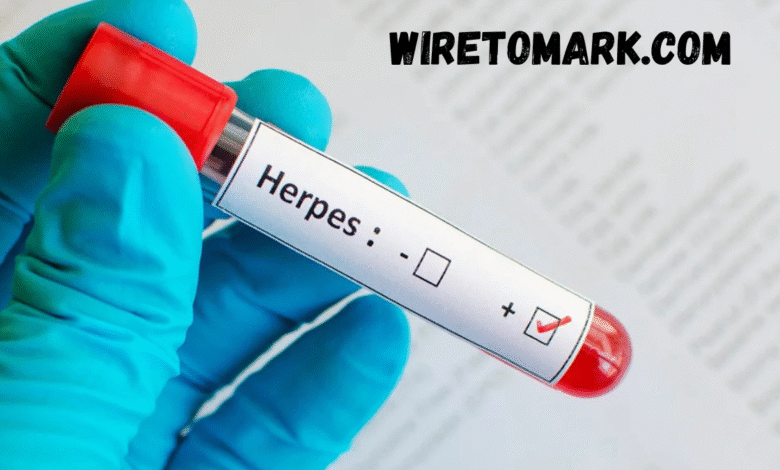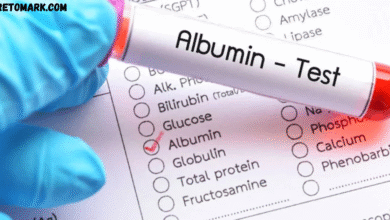Understanding HSV 1 IgG Type Specific Ab

When it comes to health, especially infections that affect many people worldwide, clarity is everything. HSV 1 IgG type specific Ab is a test name you may have come across during a routine checkup or after speaking with your healthcare provider. It sounds technical, and honestly, it is, but that doesn’t mean it’s beyond reach. Let’s break it down in a way that feels straightforward yet backed by expert insights.
This antibody test is designed to identify if your body has responded to herpes simplex virus type one. Unlike a quick swab or culture, this blood test focuses on the immune system’s history with the virus. For anyone who has ever worried about cold sores, transmission, or simply understanding what’s happening inside their body, learning about HSV 1 IgG type specific Ab testing can be empowering.
HSV 1 IgG Type Specific Ab and What It Means
At its core, HSV 1 IgG type specific Ab is all about antibodies. Antibodies are proteins your body creates after it encounters certain infections, and they act like a memory bank for the immune system. If you’ve been exposed to herpes simplex virus type one, your immune system leaves behind a clear signal—these antibodies. Testing for them tells us whether your body has seen the virus before, even if you never noticed symptoms.
This test is not about diagnosing a sudden outbreak; instead, it focuses on the long-term picture. That makes it especially valuable for people who may be curious about their health history, partners who want transparency, or anyone managing recurring oral sores but unsure of the cause. By targeting type one specifically, it avoids confusion with type two, which is often associated with genital herpes.
Why HSV 1 IgG Type Specific Ab Testing Matters
Many people think herpes is always obvious. But in reality, a large number of individuals carry HSV-1 without realizing it. That’s where HSV 1 IgG type specific Ab testing steps in. It brings clarity, helping people understand whether they are carriers of the virus, even if they’ve never had noticeable outbreaks. Knowledge here isn’t just about health—it’s about confidence and peace of mind.
Beyond personal reassurance, this testing can also guide conversations with partners. Knowing your antibody status can help set expectations, reduce unnecessary worry, and create opportunities for preventive steps if needed. In healthcare, understanding your antibody response is also crucial for managing any future symptoms in a more informed way.
How the HSV 1 IgG Type Specific Ab Test Works
The test itself is quite straightforward. A small blood sample is taken, usually from a vein in your arm, and sent to a lab for analysis. Technicians then check for the presence of IgG antibodies specific to herpes simplex virus type one. It’s not the most dramatic of medical procedures—you’re in and out pretty quickly—but the information it provides can be long-lasting.
One important thing to note is timing. After an initial infection, it can take several weeks for antibodies to reach detectable levels. That means testing too early might not give an accurate result. Healthcare providers often recommend waiting at least a month or more after suspected exposure before relying on this test.
What Results Can Tell You
When you receive your results, you’ll generally see them explained as positive, negative, or sometimes equivocal. A positive HSV 1 IgG type specific Ab result indicates past exposure to the virus and the presence of antibodies. A negative result means no antibodies were found, suggesting no prior exposure, at least up to the point of testing.
Equivocal results are less common but can happen. This basically means the test wasn’t conclusive, and another round of testing might be recommended. Regardless of outcome, results should be discussed with a healthcare provider, who can interpret them in the context of your symptoms and history.
Differences Between IgG and IgM Testing
It’s worth mentioning that HSV tests often include two different antibody types: IgG and IgM. IgM is associated with more recent infections, while IgG shows up later and stays with you for life. HSV 1 IgG type specific Ab testing is preferred because IgM testing can be less accurate and sometimes misleads with cross-reactivity.
This distinction matters because you want answers that stick. With IgG, you’re looking at the bigger picture, not just a snapshot of what might be happening right now. For most people, it’s the more reliable path toward understanding their status.
Common Misconceptions About HSV Testing

A lot of myths float around when it comes to herpes. One common misunderstanding is that only people with visible cold sores should get tested. The truth is many people with HSV-1 never have a clear outbreak but still carry the virus. HSV 1 IgG type specific Ab testing clears up this uncertainty.
Another misconception is that testing automatically reveals when you were infected. Unfortunately, antibody tests can’t pinpoint the exact timing of exposure—they can only confirm if exposure happened. This limitation can be frustrating, but it’s still far better than staying in the dark.
Who Should Consider HSV 1 IgG Type Specific Ab Testing
If you’ve ever had unexplained sores around your mouth or want to better understand your health profile, HSV 1 IgG type specific Ab testing is worth considering. People who are starting new relationships or planning for pregnancy often find it especially important to know their antibody status.
Additionally, healthcare providers might suggest this test if you’ve had recurring oral discomfort, tingling sensations, or cold sore-like symptoms that come and go. Even without symptoms, many choose to get tested simply for peace of mind.
Managing Life with a Positive Result
Getting a positive result can stir up mixed feelings. While HSV-1 is extremely common and usually manageable, some people initially feel overwhelmed. The important thing to remember is that this doesn’t define you. Millions of people live with the virus without it interfering with their quality of life.
Practical steps include learning your triggers, managing outbreaks if they appear, and being open with partners when appropriate. A positive HSV 1 IgG type specific Ab result is information—it doesn’t mean your health is compromised or that your relationships need to suffer.
Preventive Approaches After Testing
If you discover you carry HSV-1, preventive steps can help reduce outbreaks and transmission. Simple habits like avoiding sharing utensils during an active sore, practicing good hygiene, and managing stress can make a huge difference.
Some people also explore antiviral medications with their healthcare provider, especially if outbreaks are frequent or severe. Having the results of your HSV 1 IgG type specific Ab test provides a clear foundation for making these decisions together with your doctor.
The Role of Emotional Wellbeing
Beyond the science, HSV testing often brings up emotional questions. People sometimes equate a positive result with stigma, even though it’s one of the most common viruses worldwide. Knowing your HSV 1 IgG type specific Ab status can help you reframe this narrative—it’s about awareness, not shame.
Support networks, online communities, and honest conversations with loved ones often help people process their results. In fact, many find that once they have answers, the anxiety they carried before testing begins to fade away.
Limitations of the Test
While HSV 1 IgG type specific Ab testing is highly valuable, it’s not perfect. False positives and negatives can occur, though they’re relatively rare. Testing too soon after exposure is one of the main reasons results may not align with reality.
It’s also important to understand that this test can’t predict how severe your outbreaks will be or whether you’ll experience symptoms at all. It’s simply a tool to confirm exposure and guide next steps.
Talking to Your Healthcare Provider
Discussing your HSV 1 IgG type specific Ab results with a professional ensures you get accurate guidance. They can explain the nuances of your results, address concerns about relationships, and recommend treatment options if needed. Sometimes just having a trusted source clarify the meaning of your test results can relieve stress. Healthcare providers can also advise on when retesting might be appropriate, especially if your initial results were inconclusive.
FAQs About HSV 1 IgG Type Specific Ab
What does a positive HSV 1 IgG type specific Ab result mean?
It means your body has developed antibodies against herpes simplex virus type one, suggesting past exposure.
Can this test tell me when I got infected?
No. The test only shows whether you’ve been exposed at some point, not the timing.
Is the test painful?
It’s a simple blood draw, so aside from a quick pinch, it’s usually not uncomfortable.
Can I get tested without symptoms?
Yes, many people take the HSV 1 IgG type specific Ab test without symptoms to better understand their health status.
Is there a cure if I test positive?
There’s no cure for herpes simplex virus, but outbreaks can be managed with lifestyle adjustments and medication when needed.



